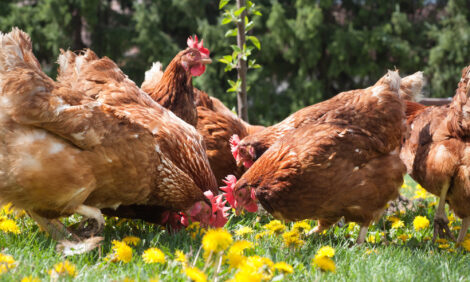



Declining Demand for Backyard Poultry in India
INDIA - With the number of broiler chicken farms increasing in the Medak district on Andhra Pradesh, the demand for backyard poultry is dwindling.Though it has not reached an alarming level yet, one need not be surprised if that happens within the next few years, reports The Hindu Times.
Despite health problems that may occur due to the consumption of broiler chicken, people prefer it given its low cost and easy availability.
For instance, while broiler dressed chicken costs about 120 Rupees (INR) to INR140 per kilo, the backyard chicken (‘Naatukodi’) costs INR150. The impact of consumerism has had its impact on the rearing of backyard poultry as well.
While it takes more than four months for country chicken to earn a weight of 2kg, the broiler can attain that weight within one and a half months. Supply of highly concentrated feed, vaccination for disease prevention, use of pro-biotic and anti-biotic are said to be some of the reasons for the quick growth.
In the case of the local breed, one has to take care of its security from humans and animals. “I have about 50 of the local breed in my backyard but protecting them from theft is a herculean task. We are sure to miss one or two whenever all of us go for outside work.
There is no other choice for us,” says Venkateswara Reddy from Tekalapur village of Dindi mandal in Nalgonda district. The local breed, which is largely disease-resistant, survives on meagre feed grains without the need for concentrated food; it has less fat content compared to broiler and is tastier.
People prefer broiler as it is easily accessible, although health wise, the local breed has more advantages for the consumer. Yet, despite these advantages, the demand for the local breed is dwindling. According to details available with the officials, the number had fallen from 980,000 2007 to 887,000 in 2012. Change in lifestyle and access to broiler chicken at a lesser cost are said to be some of the reasons for this.
“The broiler has some pro-bacterial and anti-bacterial residue which may harm the consumer in the long run,” K. Lakshma Reddy, Joint Director, Animal Husbandry told The Hindu Times.









